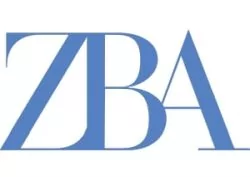UPL Limited v. Standard Chartered Bank & Ors..- AIR 2021 Bom 227
Introduction
A recent judgment of the Bombay High Court dealing with a dispute regarding Letters of Credit (LOC), sheds valuable light and guidance on the duty of bankers make payment under the credit. The Court concluded by finding the bank liable for releasing payment under the LOC without properly scrutinizing and examining the documents to ensure that they were in accordance with the credit.
Brief facts
UPL Limited ("UPL"), a company that deals in pesticides, entered into a contract for the purchase of 400 metric tonnes of yellow phosphorous from Hunan International Trade General Corporation, Changsha, Peoples Republic of China ("Hunan"). The contract required payment to be made by an irrevocable LOC.
UPL accordingly approached Standard Chartered Bank, Mumbai Branch ("Bank"), for the issue of letter of credit in favour of Hunan. Accordingly, a LOC was opened for the contractual amount.
The terms of the LOC required the beneficiary to submit certain documents i.e., sets of invoices and clean bills of leadings, along with a certificate of sea-worthiness of the vessel from the shipping line or their agents.
The LOC also required the vessel to be not more than 25 years and classified by a renowned classification society. In addition to the special terms and conditions stipulated by the LOC, the Bank was also subject to the Uniform Customs and Practice for Documentary Credits,1993 revision (UCP 500). The Bank was therefore duty bound to reject documents if they were not in conformity with the terms and conditions of the LOC.
The Bank informed UPL that they had received the bills of exchange and other documents drawn under the LOC. However, the Bank refused to allow UPL inspection of the documents before releasing payment.
Subsequently 20 days after making payment under the LOC, the Bank furnished the documents to UPL and informed them that it had debited the accounts of UPL for the contractual amount. UPL on examining the documents found several serious discrepancies, in particular the transport documents and the documents regarding sea worthiness of the vessel.
Eventually UPL discovered that the seller and its representatives had presented false documents to Agricultural Bank of China i.e., the seller's bank under the LOC and obtained payment for the bills of exchange from them. The Agricultural Bank of China obtained reimbursement of the amount paid by them to the beneficiary from the New York Branch of the Bank. It was therefore apparent to UPL, that the Bank had wrongly made payment under the LOC without properly examining and scrutinizing the documents.
UPL accordingly sued the Bank in negligence for recovery of amounts wrongly debited it along with interest and damages.
Bank's explanation:
The Bank explained that the documents were thoroughly checked and found to be prima facie in order and in conformity with the LOC.
The Bank contended that UPL's claim against the Bank was an afterthought, as UPL's claim only arose after they realized the difficulty in obtaining delivery of the goods, which had been delayed.
The Bank argued that they were not concerned with the underlying transaction between UPL and Hunan and had sufficiently discharged their duty as the documents appeared to be in conformity with the LOC. The Bank submitted that they were not expected to verify whether the named vessel was actually an ocean-going vessel or was in fact sea worthy.
Court's analysis:
The Court whilst explaining the legal relationship created by a letter of credit held that a letter of credit is a mechanism used in international commercial contracts to ensure that payment for goods or services is secured.
The Banker on the instructions of the buyer, issues the letter of credit and undertakes to pay the seller on satisfaction that the seller has discharged the obligations set out in the conditions incorporated under the letters of credit. It entails two contracts. First, between the banker and the buyer. And second, between the banker and the seller. The latter contract is separate from and independent of the underlying contract between the buyer and the seller. The Bank deals only with the documents and not the underlying contract between the buyer and the seller.
Therefore, the question of the Bank's liability revolves around the standard of care and diligence exercised by the Bank in examining documents presented under LOC's before releasing payment.
Uniform Customs and Practice for Documentary Credits,1993 revision:
The Court found that under UCP 500 the Banker is required to scrutinize the documents with reasonable care. And this can only be determined on the basis of the document alone. The Bank is not required to enquire upon the truthfulness of the facts stated in the documents. However, there is an equally compelling duty to ascertain with reasonable care that the documents tendered satisfy the requirements stipulated under the LOC.
The Court relied upon several foreign judgments regarding a bank's duty involving letters of credit and found that the Bank is not absolved of the duty to satisfy itself that the documents tendered conform to the conditions and instructions as borne out under the LOC. The Bank is not expected to assume the role of an investigator in ascertaining the genuineness of the documents and the truthfulness of the statements made in the documents. However, the Bank is obliged not to make payment, if on the face of the documents it becomes abundantly clear that they do not satisfy the stipulations under the LOC.
On the facts of the present case, the Court observed that the LOC specifically required the seller to furnish a complete set of three original non-negotiable copies of clean on-board ocean bills of lading (issued by the carrier or their agents) to the order of the Bank. This stipulation being abundantly clear, it was required to be strictly adhered to. However, a combined transport bill of lading was presented to the Bank which on the face of it, was clearly contrary to the terms of the LOC.
Furthermore, the certificate issued by the ship owner did not certify that the goods were shipped on a particular vessel, whereas the LOC required that they certify not only the vessel but also the sea-worthiness of the vessel. The Court found that these were important stipulations intended to verify the shipment and safety of the goods being purchased.
The Court ultimately found that the Bank's failure to adequately scrutinize the documents resulted in the Bank not discharging its duty with reasonable care before making payment under the LOC.
The Court accordingly decreed the suit in favor of UPL and directed the Bank to pay amounts claimed along with interest and proportionate costs.
Conclusion:
This ruling of the Bombay High Court is a salutary guide on the standard of diligence and scrutiny expected by banks when dealing with LOC's.
The degree of investigation and the amount and duty of care required by bankers is well explained and in accordance with international banking standards.
The judgement is an important reminder that banks must exercise due care and caution in ensuring that the documents are in conformity with the terms of the credit before releasing payment.
The above is a generic analysis and should not be regarded as a substitute for specific advice based on the facts of a client's objectives and specific commercial agreements reached. Please do reach out to us at mail@zba.co.in for any queries.

